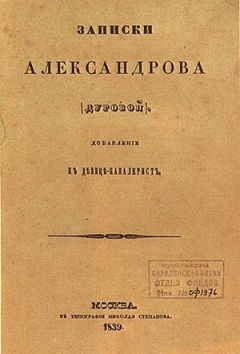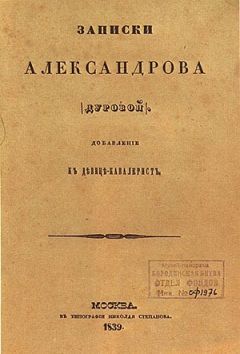Peter Carey - Oscar and Lucinda
111
Glassworks
Lucinda was afraid. She felt very small. She wished Sol Myer would suddenly demand that she act her age and return to Parramatta.
Her arms, beneath her cape, were goose-pimpling. She wound a cotton scarf around her face and blew into her hands. Sol swung the wheel and, as the boat came about, she saw these words: Prince Rupert's Glassworks. The board that bore the words was weathered and faded-lime green against a poison blue.
The works were all in shadow, like a stranger's face under a hat, and not any more inviting because of it. You could not see what it was, how it was made, how it was put together. There were sheds, a chimney with black smoke. It could have been a blacksmith's, were it not for the crates of bottles.
These glassworks were for sale. There was a sign that said so, not a new sign, but more recent than the one that said Prince Rupert's. They looked intimidating, almost evil. Very well, she thought, if that is what it is to be. She made this decision without understanding that there existed, within this city, places with trees and grass and flowers.
Sol brought his craft into the wharf, sliding it gently through the smaller craft, like a careful hand amongst bobbing apples. Lucinda stood up. The crinoline cage swayed. She moved along the edge of the boat self-consciously. She felt all the wharf looking at her, but she was wrong. She took her own case down from the cabin roof. It was heavy with books. The case banged against her thigh and bruised it. She did not know anything about Sydney. She did not know how to engage an omnibus or a hansom cab, what they cost, where they went or how they were stopped. She paid Mr Myer sixpence for the journey. He gave her a cauliflower and then, in a bristly rush, a kiss on her cold cheek. He delivered her on to the wharf amongst hessian bags and steelwheeled trolleys. Two Chinamen, one wet, one dry, were slinging heavy parcels on to long cane poles. Lucinda walked like someone unused to shoes. She struggled up the hill from the wharf with her suitcase banging against her right side, a cauliflower clutched in her left hand. The suitcase put her skirt cage violently off centre. This is how she arrived at Petty's Hotel. At first they thought her at the wrong address. She placed her cauliflower on the desk and asked them, blushing brightly, if there was a reliable library close
to the hotel. She had decided to study glass.
34
After Whitsunday
The Reverend Dennis Hasset, vicar of All Saints in Woollahra, was pleased, having received the letter to invite L. Leplastrier to discuss his queries on the "physical properties and manufacture of glass." Not Lavoisier, Leplastrier, but a Frenchman doubtless. Lavoisier was a scientist famous for gases. Lavoisier, anyway, was dead. Dennis Hasset was flattered none the less. It was the day after the Whitsunday baptisms-fourteen babes-inarms and the father of Morton the grocer. He had planned an idle day and this interview was an indulgence. He readied himself for it with a self-consciousness he found amusing. He placed around his study those learned magazines in which his work had appeared, did it in such a careful way (a self-mocking way, too, but that is not the point) that the wandering eye of a guest could not help but fall upon them. He could thus display himself like a case of Tasmanian Lepidoptera, with polished pins through his nose and earlobes. He could lay down the journals like a manservant lays out vestments, and even while he laughed at himself for doing something so childish, still approached the matter with the utmost particularity.
"You see, Monsieur," he told the empty room, "it is like this." Like what? He did not know. He placed two large red split logs on the fire and went to sit behind his desk while the first red splinters spluttered and ignited.
The study was dark, but not sombre, and the desk he had placed across one corner looked out on to a bright, cold vista: a curl of yellow road swirling through two lines of eucalyptus and then out of sight. Behind this was a two-inch brushstroke of ocean. He was burning lamps at midday, four of them. He had them dotted here and there to balance the brightness of the window. The Reverend Dennis Hasset found all this very satisfying. He placed his hands on the red leather 114
After Whitsunday
top of the desk, regretted the round stain left by a glass of claret, but was pleased to remember that the claret, a Bechyville, had been a eood one.
O
He was a tall, well-made man in his early thirties. His face could almost be called handsome, and often was, for he gave his companions such a sense of his deep interest in them that they easily overlooked those heavy eyebrows-joined across the bridge of his nose-that marred his looks. He had dark curly hair, elegant side-whiskers, a slightly long face and a dimpled chin. His natural complexion was a step short of olive, although an increasing fondness for claret made it redder than the season could explain. But claret or no, he was one of those people who-should you lay a hand on his arm, say, in comradeship-you would find to be of a surprising hardness: surprising, that is, to you, but not to the twenty-four boys at St Andrew's day school whom he coached in Rugby.
He was a bachelor and he would have said it was not by choice, that he wished nothing more in his life than a wife and children, and yet the truth-which he acknowledged now, adjusting the level of the lamp on his desk so that it cast a low and golden light on the cedar surround of the leather top-was that he had become so particular in his habits that it would have taken the most impossible charity for him to permit, good fellow though he was, his beloved to alter either the number of lamps or their intensity. Was that the truth? Or was it what he feared to be the truth?
Did he not enjoy the company of women? Would he not, as they said, "adjust"?
It had not taken him long to discover that the women were by far the most interesting of the two sexes in the colony, although you would never imagine it the case if you met them with their menfolk present. For then they affected the most remarkable vapidity. But alone, or with their own sex, they revealed themselves as scientists when it came to the vectors of the human heart. Besides-and he knew this himself-he was a vain man. They admired him and he liked to be admired. He liked to stretch his big body on their chintz-covered settees and accept another tea. He enjoyed this all a great deal and it would have been reprehensible had he not, at the same time, observed the little beetle of pride, the insect of lust, the segmented undulating caterpillar of conceit. So even while he stretched a leg to reveal a black wool ankle he was describing himself to himself, just as he might press his eye to his microscope and detail the mandibles of a colonial dragonfly. This was his great strength. It was his great weakness, too,
34
After Whitsunday
The Reverend Dennis Hasset, vicar of All Saints in Woollahra, was pleased, having received the letter to invite L. Leplastrier to discuss his queries on the "physical properties and manufacture of glass." Not Lavoisier, Leplastrier, but a Frenchman doubtless. Lavoisier was a scientist famous for gases. Lavoisier, anyway, was dead. Dennis Hasset was flattered none the less. It was the day after the Whitsunday baptisms-fourteen babes-inarms and the father of Morton the grocer. He had planned an idle day and this interview was an indulgence. He readied himself for it with a self-consciousness he found amusing. He placed around his study those learned magazines in which his work had appeared, did it in such a careful way (a self-mocking way, too, but that is not the point) that the wandering eye of a guest could not help but fall upon them. He could thus display himself like a case of Tasmanian Lepidoptera, with polished pins through his nose and earlobes. He could lay down the journals like a manservant lays out vestments, and even while he laughed at himself for doing something so childish, still approached the matter with the utmost particularity.
"You see, Monsieur," he told the empty room, "it is like this." Like what? He did not know. He placed two large red split logs on the fire and went to sit behind his desk while the first red splinters spluttered and ignited.
The study was dark, but not sombre, and the desk he had placed across one comer looked out on to a bright, cold vista: a curl of yellow road swirling through two lines of eucalyptus and then out of sight. Behind this was a two-inch brushstroke of ocean. He was burning lamps at midday, four of them. He had them dotted here and there to balance the brightness of the window. The Reverend Dennis Hasset found all this very satisfying. He placed his hands on the red leather 114
After Whitsunday
top of the desk, regretted the round stain left by a glass of claret, but was pleased to remember that the claret, a Bechyville, had been a good one.
He was a tall, well-made man in his early thirties. His face could almost be called handsome, and often was, for he gave his companions such a sense of his deep interest in them that they easily overlooked those heavy eyebrows-joined across the bridge of his nose-that marred his looks. He had dark curly hair, elegant side-whiskers, a slightly long face and a dimpled chin. His natural complexion was a step short of olive, although an increasing fondness for claret made it redder than the season could explain. But claret or no, he was one of those people who-should you lay a hand on his arm, say, in comradeship-you would find to be of a surprising hardness: surprising, that is, to you, but not to the twenty-four boys at St Andrew's day school whom he coached in Rugby.
He was a bachelor and he would have said it was not by choice, that he wished nothing more in his life than a wife and children, and yet the truth-which he acknowledged now, adjusting the level of the lamp on his desk so that it cast a low and golden light on the cedar surround of the leather top-was that he had become so particular in his habits that it would have taken the most impossible charity for him to permit, good fellow though he was, his beloved to alter either the number of lamps or their intensity. Was that the truth? Or was it what he feared to be the truth?
Did he not enjoy the company of women? Would he not, as they said, "adjust"?
It had not taken him long to discover that the women were by far the most interesting of the two sexes in the colony, although you would never imagine it the case if you met them with their menfolk present. For then they affected the most remarkable vapidity. But alone, or with their own sex, they revealed themselves as scientists when it came to the vectors of the human heart. Besides-and he knew this himself-he was a vain man. They admired him and he liked to be admired. He liked to stretch his big body on their chintz-covered settees and accept another tea. He enjoyed this all a great deal and it would have been reprehensible had he not, at the same time, observed the little beetle of pride, the insect of lust, the segmented undulating caterpillar of conceit. So even while he stretched a leg to reveal a black wool ankle he was describing himself to himself, just as he might press his eye to his microscope and detail the mandibles of a colonial dragonfly. This was his great strength. It was his great weakness, too,
Oscar and Lucinda
an excess of detachment from his own life.
He knew he was clever but not distinguished, influential but not powerful, or if so only in the most indirect way through the fathers who took an interest in the rugby-playing of their sons. Waiting for Monsieur Leplastrier, he arranged a piece of glass cullet on his desk, a large clear piece, like a great chunk of diamond, clear enough to make optical glass, made from the fine leached sands of Botany.
Glass was his enthusiasm but not his passion, and while-for instance-he had enjoyed giving his lectures ("Some Surprising Properties of Glass") to the East Sydney Mutual Improvement Society — the newspaper report of which had, he presumed, drawn the impending Leplastrier to him-he did not care sufficiently. There was something missing from his engine. It could not sustain the uphill grades.
This quality, however, was represented in plenty by the young lady who was being admitted to his household at this moment. The Reverend Dennis Hasset did not hear the doorbell. He arranged the cullet on his desk, turning it half a degree so that a ray of morning sun was refracted, just so, to strike (he giggled at the cheap theatricality) his framed degree from Cambridge. He was so taken by this preposterous showing off that he did not notice the "Miss" instead of the "Mr" when his guest was announced. |
"Jolly good, Frazer," said Dennis Hasset. "Show him in." j He was surprised, of course, to find Monsieur Leplastrier in skirts,! but he was not shocked. He was delighted. He made his petite visitor blush by continuing to call her monsieur and it took a while before he saw his insensitivity, and then he stopped it.
She sat opposite him. She was very young, but he could not tell exactly how young. Her manner, in many respects, was that of a woman in her twenties, although this impression was contradicted not only by her small stature, but in the way her confidence-so bright and clean at the beginning of a sentence where every word was as unequivocable as the unsmudged lines of her perfectly arched eyebrows-would seem to evaporate as she began, not quite to mumble, but to speak less distinctly, and her eyes, which had begun by almost challenging his, now slid away towards bookshelf or windowledge. There was also the charming, rather European way she gestured with her handsthey were very flexible and she could bend her palms right back from her wrists, her fingers back at another angle again-and there was something in these gestures, so ostensibly worldly, so expressive, even
11*
After Whitsunday
expansive which, combined with the shyness which her shifting eyes betrayed, gave an impression of great pluck. Dennis Hasset was much touched by her.
She wore an unusual garment: grey silk with a sort of trouser underneath. Dennis Hasset-no matter what his bishop thought-was not a radical, and this garment shocked him, well, not quite shocked, but let us say it gave a certain unsettling note to their interview, although the discord was muted by the quality of the silk and the obvious skill of the dressmaking. These were things he knew about. The garment declared its owner to be at once wealthy and not quite respectable. She was "smart," but not a beauty. There was about her, though, this sense of distillation. Her hands and feet were quite dainty, but it was in her face that he saw this great concentration of essence. It was not that her eyes were small, for they were large. The green iris was not a deeper green, or a brighter green. It was clear, and clean and, in some way he could not rationally explain, a great condensation of green. The eyes were gateways to a fierce and lively intelligence. They were like young creatures which had lost their shells, not yet able to defend themselves.
The mouth was small, but there was no suggestion of meanness, merely-with the lips straightdetermination or-when they were relaxed and the plump lower lip was permitted to show-a disturbing (because it appeared to be unconscious) sensuality.



